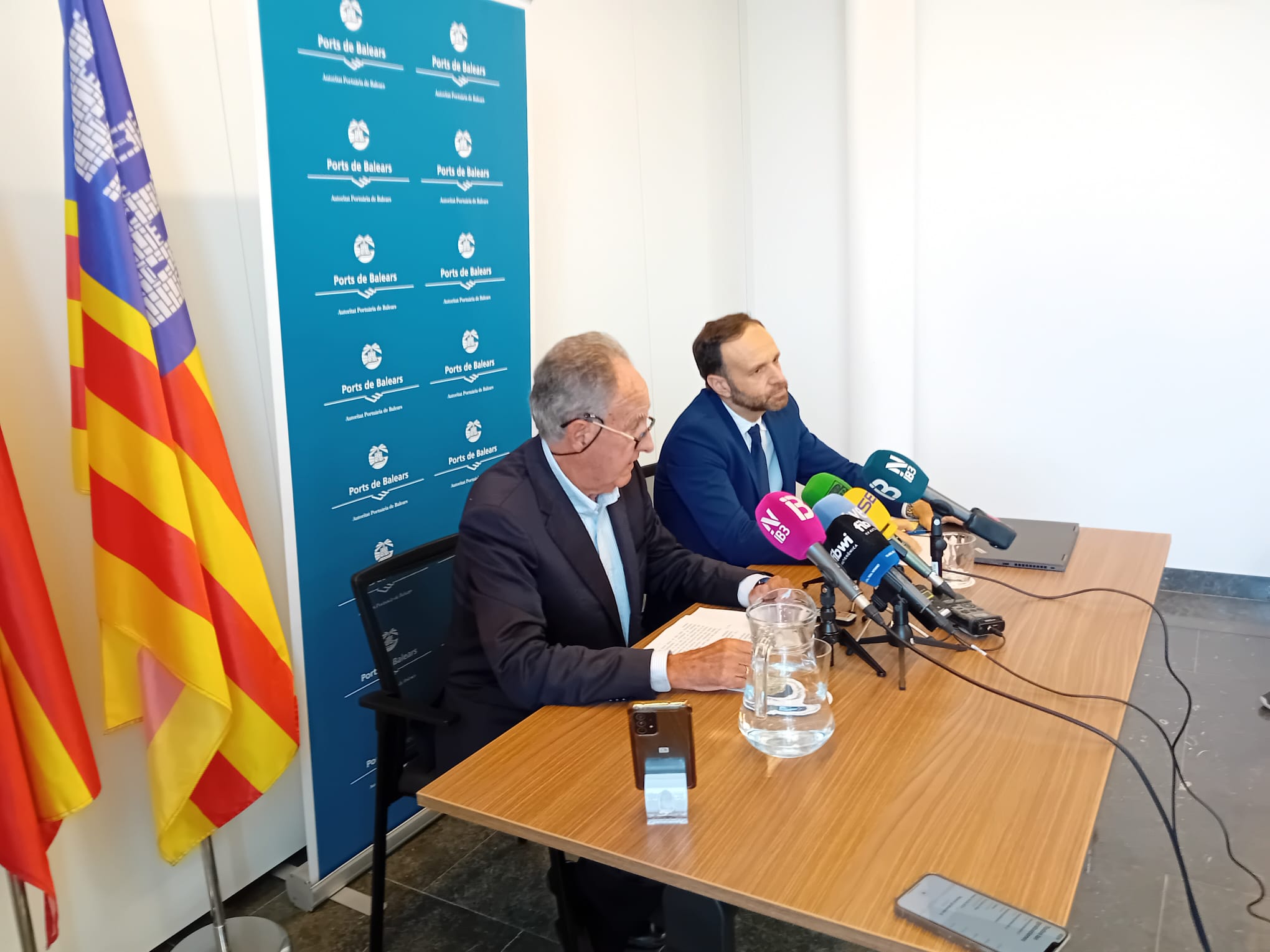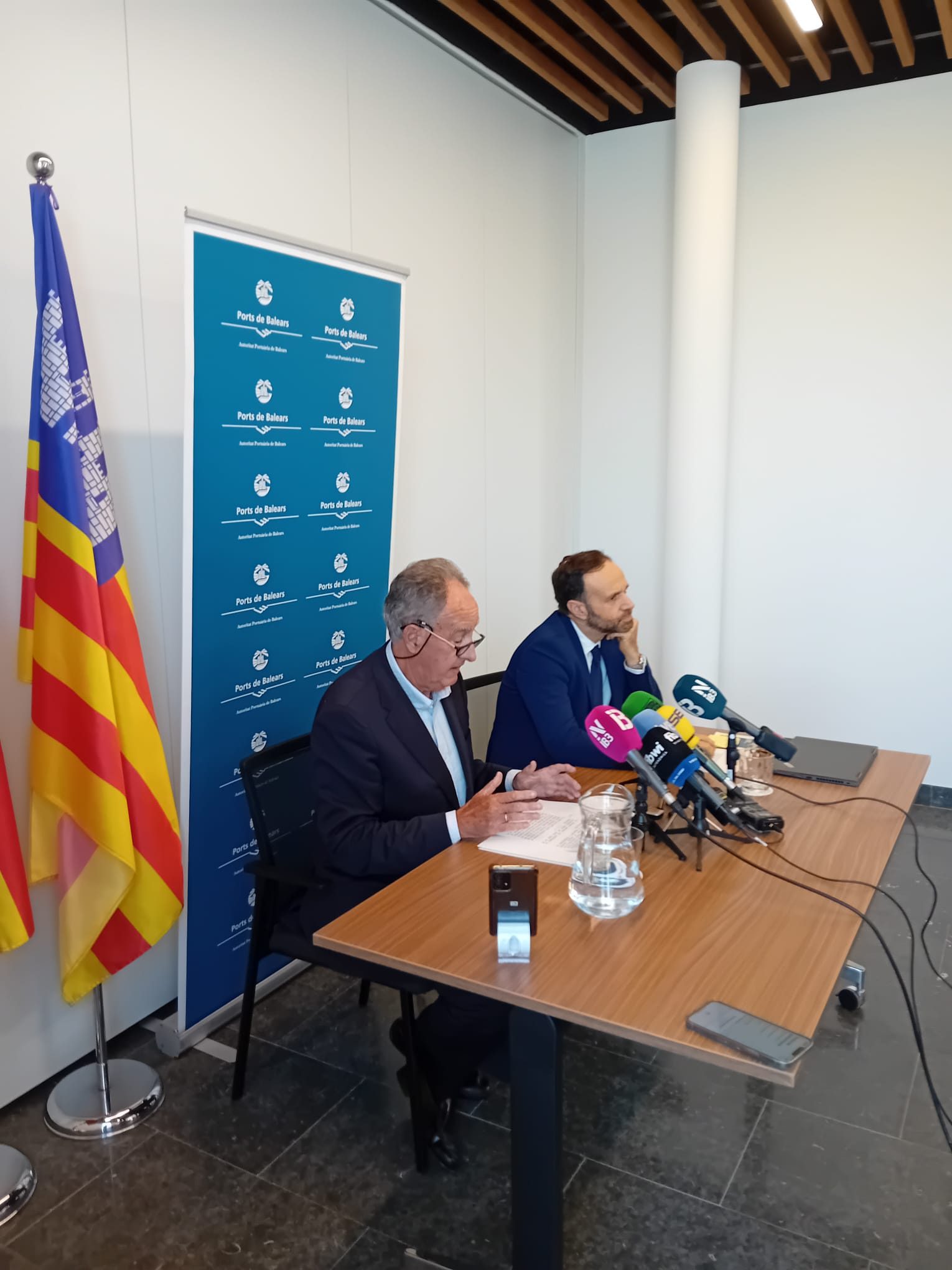
The APB will debate a new development for the Port of Palma at its Board of Directors meeting
President Javier Sanz recognises that the port currently has no plan for the future and he is responsible for reaching a consensus to define a new direction
Palma
06/06/2024- Port-city
- Transport and infrastructure
Javier Sanz, president of the Balearic Islands Port Authority (APB), said that after the consensus reached yesterday by the Board of Directors to paralyse the 2020 project for port development, today the Port of Palma has no plan for the future. As such, he said, the duty of the APB as the management body in charge is “to work on a new restructuring that has the maximum consensus of all stakeholders involved”.
Javier Sanz pointed out that at the last meeting of the Board of Directors, the members agreed to discuss the proposals currently on the table regarding a new layout in forthcoming sessions. The aim is to approve a new project for the medium-term future as soon as possible. “Nothing has been decided. We are currently analysing alternatives which are being assessed and which we are sharing with a broad group of sectors to obtain feedback and include them in the decision-making process”, added Sanz.
Abandoned project
Speaking to the media together with the director of the APB, Toni Ginard, Javier Sanz explained that upon taking office he was faced with a redevelopment project for the Port of Palma, which had been approved by the Board of Directors in 2020 that envisaged a 90,000-square-metre growth in the port's inland waters. After a series of meetings, he noted that both the shipping companies and the ship repair sector disagreed with this plan because it did not respond to long-term needs.
The shipping companies voiced considerable concern about the potential threat of congestion posed by the previous proposal, which concentrated all the port's cargo loading and unloading operations in the West Dock, especially during the morning peak hours. As for the repair sector, they considered that the project was urgently needed in a limited area and in front of the Cathedral, a space that could be integrated more naturally with the city.
After a discussion within the Board of Directors, a decision was made yesterday to abandon the 2020 project and liquidate the work contracted to carry out this plan, “because it involves an economic expense that is no longer justified”, said Sanz.
Although nothing has been decided, the change of course in the Port of Palma will focus on four aspects. Firstly, it will maintain simultaneous port operations in the commercial docks, the Ponent-Paraires docks and the West dock. It will reduce the space allocated to cruise ships, concentrating their activity on the Ponent-Paraires dock.
Also, it will gradually move ship repairs to the West dock and the Ribera de Sant Carles quay. Lastly, it will increase the integrated space between the port and the city in front of the Cathedral, using this space for initiatives related to culture, training and, most importantly, sport. “As far as I am concerned, this is the most important thing we have planned for the redevelopment of the port”, said Sanz.
According to Javier Sanz, the premise of this initiative led by the APB is that these alternatives should promote a diversified economic model compatible with social welfare, promote industrial diversification and encourage port-city integration by prioritising values such as urban regeneration and the provision of quality spaces for public use.
Social responsibility
APB's president wanted to clarify that “these alternatives under consideration are in line with the idea that congestion compromises the destination's competitiveness and affects social profitability. This change of direction is aligned with a fresh vision of port investments that we want to promote and which prioritise the efficiency of public resources and the profitability of social value investment”.
“This responds to a global trend that the APB wants to embrace and which highlights how strategically important projects that improve the quality of life of cities and of those who live in and visit them are, not just projects that are committed to port operational efficiency, as was the case with the previous project approved in 2020”, Sanz added.








